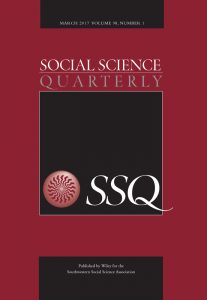Introducing Digital Sociology

Source: http://www.123rf.com/photo_24005597_education-concept-pixelated-words-sociology-on-digital-background-3d-render.html
For its emerging practitioners, Digital Sociology is an ambitious and exciting new development. The ‘digital’ in its name is intentionally vague. It signifies anything that involves the transmission of 0s and 1s so includes everything from the Web, to the Internet of Things, to downloadable music, to devices that capture our heart rate: they are all within Digital Sociology’s scope. Digital Sociology is attempting to exploit all the opportunities digital technology can offer. Simultaneously, Digital Sociology plans to continue sociology’s tradition of critical engagement with technology; temper some of the unrestrained rhetoric that attends digital innovation. However, it aims to achieve this in a way that avoids interdisciplinary friction.
These are just some of the questions Digital Sociology asks – questions that could be crucial to the future of sociology:
- How can digital technology enhance the job of research? For example, has there ever been a more flexible and convenient ethnographic data capture device than the iPhone?
- How can digital technology amplify sociological voices; particularly beyond the academy? For example, blogs such as The Sociological Imagination, Discover Society as well as, of course, The Sociological Lens are taking pioneering sociology to a new, non-specialist, albeit English-speaking, global audience.
- How can sociology work with other disciplines to achieve new insights? For example, what are the new methods; particularly those being developed within disciplines such as computer and network science, that sociologists can put to inventive use? Sociology confronts some of society’s most profound and seemingly insoluble problems; in this respect, has digital technology improved sociology’s repertoire of instruments and data sources?
However, perhaps most crucial to Digital Sociology is an epistemological position it shares with its affiliate discipline Web Science. That is technology, from its visual design to its embedded algorithms; no matter how asocial, logical it appears to be, bares the imprint of people’s norms, values and intentions. Inversely, technology can alter the way we think of ourselves and each other. Digital Sociology attempts to unravel this complex, mutually sustaining relationship.
If all or any of this interests you please see @BSADigitalSoc on Twitter and digitalsociology.org for further information. There will also be a series of Digital Sociology sessions at the British Sociological Association’s Annual Conference.





1468-0491/asset/society_affiliation_image.gif?v=1&s=859caf337f44d9bf73120debe8a7ad67751a0209)